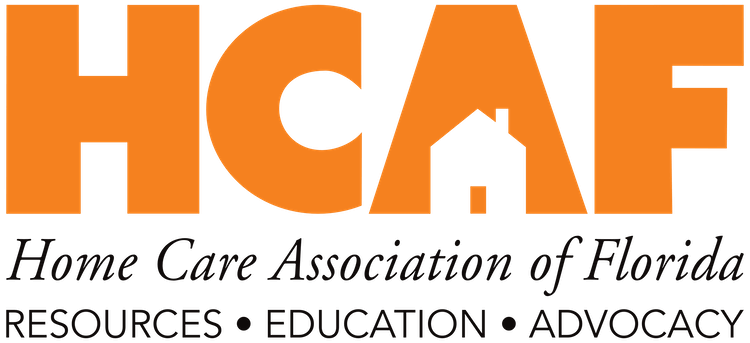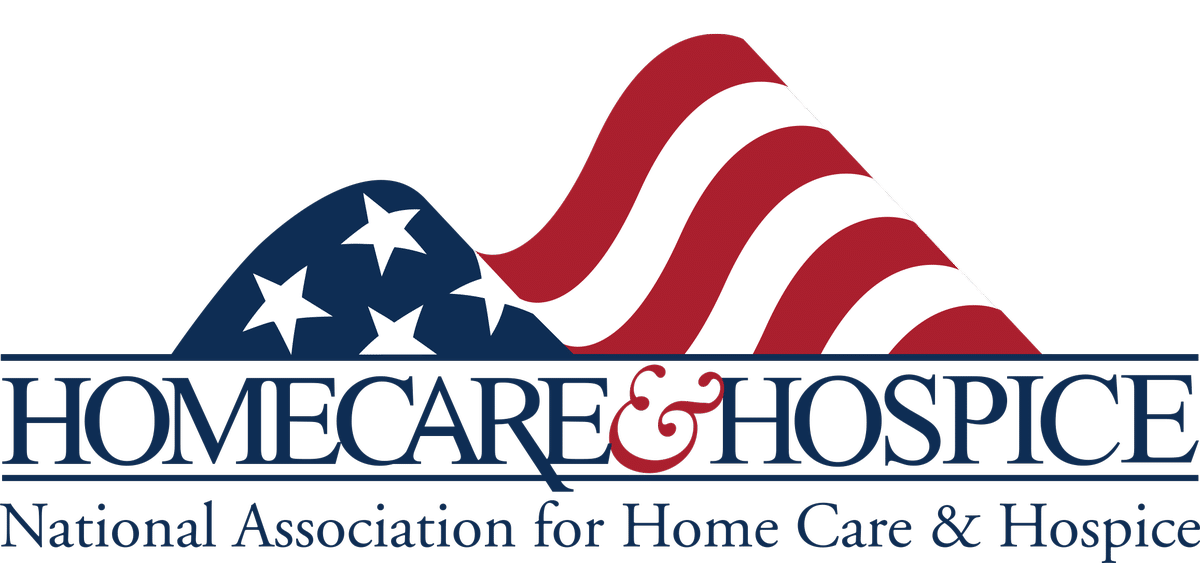Roadmap for the End of the COVID-19 Public Health Emergency

Roadmap for the End of the COVID-19 Public Health Emergency
Courtesy of the National Association for Home Care & Hospice (NAHC)
On August 18, 2022, the Centers for Medicare & Medicaid Services (CMS) issued extensive materials providing guidance related to the planned phase-out of various waivers, regulations, enforcement discretion, and sub-regulatory guidance that were utilized to ensure access to care and give health care providers the flexibilities needed to respond to COVID-19 Public Health Emergency (PHE). According to the documents — issued under the rubric “Creating a Roadmap for the End of the COVID-19 Public Health Emergency” — most of these waivers and broad flexibilities will terminate at the eventual end of the PHE, as they were intended to address the acute and extraordinary circumstances of a rapidly evolving pandemic and not replace existing requirements.
As previously indicated by Administration officials, to minimize any disruptions including potential coverage losses following the end of the PHE, the materials state that U.S. Department of Health and Human Services (HHS) Secretary Xavier Becerra will give states and the health care community writ large 60 days’ notice before ending the PHE. In the meantime, CMS is encouraging health care providers to prepare for the end of these flexibilities as soon as possible and to begin moving forward to reestablishing previous health and safety standards and billing practices. Even though providers will receive 60 days’ notice before the end of the PHE, they should begin preparing for the end of the waivers now. In order to come into compliance with the conditions of participation at the end of the PHE, it may take some providers a significant amount of time. Therefore, the National Association for Home Care & Hospice (NAHC) recommends that providers utilizing any of the PHE waivers assess the need for continued use of the waiver(s) and begin transitioning away from utilization, as possible. If it is not possible to stop utilizing the waivers, providers should develop a plan for tapering use, if possible.
While the COVID-19 PHE remains in effect CMS will use its pandemic plan as a guidebook for evaluating all existing flexibilities, while developing a comprehensive long-term approach for the health care system based on recovery and resiliency. Given the importance of this effort, CMS’ strategic plan includes a cross-cutting initiative to address the current PHE and ensure that CMS has a roadmap to support a health care system that is more resilient and better prepared to adapt to future disasters and emergencies. This work complements the work already underway to ensure as many eligible individuals as possible maintain a source of coverage, whether through Medicaid/CHIP, Marketplace, employer coverage, or Medicare.
As part of its roadmap, CMS has issued provider-specific guidance that details plans for the phase-out of various waivers and flexibilities. NAHC previously posed questions to CMS regarding some of the waivers and flexibilities and had hoped answers to those questions would be found in this most recent Roadmap. However, NAHC has continuing questions and concerns. Below are links to two documents that address home health and hospice waivers and flexibilities
- COVID-19 Emergency Declaration Blanket Waivers & Flexibilities for Health Care Providers (updated 8/18/2022)
- Fact Sheets:
The fact sheets address how CMS is handling COVID-19 vaccines and treatments and waivers and flexibilities related to telehealth and telecommunications, reducing administrative burden, workforce, Medicare appeals, provider enrollment, and several other areas. They do not include all PHE waivers and flexibilities.
The updated COVID-19 Emergency Declaration Blanket Waivers & Flexibilities for Health Care Providers document lists most of the healthcare waivers and flexibilities in provider-specific sections. However, it does not include a CMS statement on how each waiver is being handled.
It should be noted that CMS is reviewing the waivers in three concurrent phases:
- CMS is assessing the need for continuing certain blanket waivers based on the current phase of the PHE. Since the beginning of the PHE, CMS has both added and terminated flexibilities and waivers as needed. In doing so, CMS considered the impacts on communities — including underserved communities — and the potential barriers and opportunities that the flexibilities may address.
- CMS is assessing which flexibilities would be most useful in a future PHE, such as natural and man-made disasters and other emergencies, to ensure a rapid response to future emergencies, both locally and nationally, or to address the unique needs of communities that may experience barriers to accessing health care.
- CMS is continuing to collaborate with federal partners and the health care industry to ensure that the health care system is holistically prepared for addressing future emergencies.
Below, we are including those waivers/flexibilities for which NAHC has questions/concerns. The questions/concerns are identified in bold next to the waiver/flexibility to which they apply.
Home Health Agencies
Medicare Telehealth and Telecommunications Technology
Home health agencies (HHAs) can provide more services to beneficiaries using telecommunications technology within the 30-day period of care, as long as it’s part of the patient’s plan of care and does not replace needed in-person visits as ordered on the plan of care. We acknowledge that the use of such technology may result in changes to the frequency or types of in-person visits outlined on existing or new plans of care. Telecommunications technology can include, for example, remote patient monitoring; telephone calls (audio only and TTY); and two-way audio-video technology that allows for real-time interaction between the clinician and patient. However, only in-person visits can be reported on the home health claim. This provision is permanent beyond the COVID-19 PHE.
The required face-to-face encounter for home health can be conducted via telehealth (i.e., 2-way audio-video telecommunications technology that allows for real-time interaction between the physician/allowed practitioner and the patient) when the patient is at home. The face-to-face encounter can be conducted via telehealth irrespective of the COVID-19 PHE; however, the waiver only extends the “originating site” to the patient’s home during the duration of the COVID-19 PHE. Under the Consolidated Appropriations Act of 2022, Congress enacted provisions that extend the geographic and originating site requirement waivers (Section 301) for 151 days following the end of the PHE. NAHC has requested that CMS revise the home health roadmap documents to reflect the telehealth changes that were authorized under the Consolidated Appropriations Act of 2022.
Training and Assessment of Aides
CMS has been waiving the requirement at 42 CFR §418.76(h)(2) for Hospice and 42 CFR §484.80(h)(1)(iii) for HHAs, which require a registered nurse, or in the case of an HHA a registered nurse or other appropriate skilled professional (physical therapist/occupational therapist, speech language pathologist) to make an annual onsite supervisory visit (direct observation) for each aide that provides services on behalf of the agency. In accordance with section 1135(b)(5) of the Act, CMS is postponing completion of these visits. All postponed onsite assessments must be completed by these professionals no later than 60 days after the expiration of the PHE. CMS will end this waiver at the conclusion of the COVID-19 PHE. Clarification is needed regarding whether all postponed onsite assessments must be completed no later than 60 days after the expiration of the PHE or just the current year’s postponed onsite assessment.
12-Hour Annual In-Service Training Requirement for Home Health Aides
CMS is modifying the requirement at 42 C.F.R. §484.80(d) that HHAs must ensure that each home health aide receives 12 hours of in-service training in a 12-month period. In accordance with section 1135(b)(5) of the Act, we are postponing the deadline for completing this requirement throughout the COVID-19 PHE until the end of the first full quarter after the declaration of the PHE concludes. This will allow aides and the registered nurses (RNs) who teach in-service training to spend more time delivering direct patient care and additional time for staff to complete this requirement. CMS will end this waiver at the conclusion of the COVID-19 PHE. Clarification is needed regarding whether postponed training must be completed within the first full quarter after the declaration of the PHE concludes or just the current year’s postponed training.
Hospice
Medicare Telehealth and Telecommunications Technology
Hospice providers can provide services to a Medicare patient receiving routine home care through telecommunications technology (e.g., remote patient monitoring; telephone calls (audio only and TTY); and two-way audio-video technology) if it is feasible and appropriate to do so. Only in-person visits are to be recorded on the hospice claim. This waiver will expire at the end of the PHE.
Face-to-face encounters for purposes of patient recertification for the Medicare hospice benefit can now be conducted via telehealth (i.e., two-way audio-video telecommunications technology that allows for real-time interaction between the hospice physician/hospice nurse practitioner and the patient). This waiver will expire at the end of the PHE. Under the Consolidated Appropriations Act of 2022, Congress enacted provisions that extend the waiver allowing the use of telehealth to perform the hospice face-to-face encounter (Section 306) for 151 days following the end of the PHE. NAHC has requested that CMS revise the hospice documents to reflect the telehealth changes that were authorized under the Consolidated Appropriations Act of 2022.
Annual Training
CMS is modifying the requirement at 42 CFR §418.100(g)(3), which requires hospices to annually assess the skills and competence of all individuals furnishing care and provide in-service training and education programs where required. Pursuant to section 1135(b)(5) of the Act, we are postponing the deadline for completing this requirement throughout the COVID-19 PHE until the end of the first full quarter after the declaration of the PHE concludes. This does not alter the minimum personnel requirements at 42 CFR §418.114. Selected hospice staff must complete training and have their competency evaluated in accordance with unwaived provisions of 42 CFR Part 418. CMS will end this waiver at the conclusion of the PHE. Clarification is needed regarding whether postponed assessments must be completed within the first full quarter after the declaration of the PHE concludes or just the current year’s postponed assessment.
CMS encourages providers to revisit the Emergency Preparedness Requirements for Medicare and Medicaid Participating Providers and Suppliers Final Rule and updated guidance.
CMS COVID-19 Resources
- Supporting Health Care Resiliency Cross-Cutting Initiative Fact Sheet
- CMS COVID-19 Webpage
- Coronavirus Waivers and Flexibilities
- CMS COVID-19 Vaccine Toolkits
- PHE Unwinding Guidance for State Medicaid Programs
- Approved Medicaid State Waivers and Amendments
CMS COVID-19 Waivers and Flexibilities for Providers
- Physicians and Other Clinicians
- Hospitals, Critical Access Hospitals (CAHs), Ambulatory Surgery Centers, and Community Mental Health Centers
- Teaching Hospitals, Teaching Physicians, and Medical Residents
- Long-Term Care Facilities (Skilled Nursing Facilities and/or Nursing Facilities)
- Home Health Agencies
- Hospices
- Inpatient Rehabilitation Facilities
- Long-Term Care Hospitals and Extended Neoplastic Disease Care Hospitals
- Rural Health Clinics and Federally Qualified Health Centers
- Laboratories
- Medicare Shared Savings Program
- Durable Medical Equipment, Prosthetics, Orthotics, and Supplies
- Medicare Advantage and Part D Plans
- Ambulances
- End Stage Renal Disease Facilities
- Participants in the Medicare Diabetes Prevention Program

